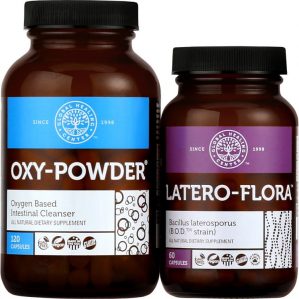Discover The Top 3 Ways to Reduce Stress – What You Need To Know About Stress
Reducing Stress with Prayer, Deep Breathing Exercises, and Meditation
Overview
When we think of stress, we associate it with all kinds of negative emotions: anxieties, worries, headaches, fear of failure, panic, sleepless nights, and whatnot. But stress is not necessarily a negative emotion, and neither is it all bad for you. It can be a great motivator sometimes. It is often seen that it brings out the best in us, and we tend to perform better when we are put under demanding situations.
The fact is, stress is essential for survival and productivity – or even for enjoyment. It is stress that helped us survive the wild in ancient times. It is also because of stress that we can enjoy a roller coaster ride today.
How does stress affect your health?
When you experience a situation that your mind perceives as something beyond your ability to cope with, stress happens. In scientific terms, it is defined as the![]() body’s adaptive response to an external condition that disrupts (or threatens to disrupt) our emotional balance.
body’s adaptive response to an external condition that disrupts (or threatens to disrupt) our emotional balance.
For example, when you are approaching a deadline or an exam, and you think there is more work left than you can manage in the given time, your mind goes into a fight-or-flight mode. At this point, your breath is shallow and quick, your heart beats faster, and you experience a higher level of mental alertness. This response mechanism helps us deal with challenging situations in life. In the above situation, you tend to ignore distractions and put all your mental resources on the task.
But if it happens too much and too often, that is when things start becoming problematic. If you constantly put yourself through stressful conditions and forget to relax afterward, it can build up and create a more serious and lingering issue – chronic diseases.
Stress buildup can germinate into a wide range of health problems, including frequent headaches, abstracted mind, low productivity, disturbed sleep, and digestive problems. Evidence shows that chronic stress can suppress your immune function and increase inflammation over time. If left unchecked, it can become a breeding ground for all kinds of chronic issues, including obesity, type-2 diabetes, high blood pressure, high cholesterol, anxiety disorders, and depression.
Why is it important to reduce stress?
The fight-or-flight reaction is actually only the first part of your stress response mechanism. Ideally, after the situation is over and dealt with, your brain should release relaxing hormones to bring you back to a state of emotional balance. Sadly, our modern-day life throws so many stressors that the brain never gets time to switch to the rest-and-digest state. This is why it is crucial to invest in self-care practices that can help you unwind and bring back your state of composure.
Meditation, deep breathing exercises, and prayer are some time-honored practices to manage anxiety and stress-related health problems. Research shows that restorative practices that involve conscious breath control and repetitive prayer methods can trigger the parasympathetic nervous system, which is responsible for inducing relaxation and undoing the harmful effects of anxiety.
Relaxation techniques for stress management
1. Deep breathing
“Take a deep breath and relax” is a piece of advice often received when you are anxious or nervous. Researchers all over the world are now beginning to look into the science behind this age-old phrase.
Most of the time, when we are not thinking about it, our breath is quick and light. It means we are using only the upper part of our lungs, which is like running your machines at 25% capacity! This results in organs and hormones functioning at sub-optimal efficiency, which compromises your ability to handle stressful situations. When you encounter a mentally challenging problem, it increases the demand for oxygen when there is already a shortage.
Deep breathing, also known as diaphragmatic breathing or belly breathing, involves engaging the lower part of your lungs so that you can draw enough oxygen to nourish all parts of your body. Research shows that taking a few slow, deep breaths can boost the supply of oxygen and nutrients to the brain, calming your senses and facilitating the transition to a rest-and-digest state.
Deep Breathing – 4 Amazing Benefits and How to Optimize Your Breath to Live Fuller and Healthier
Conscious breath control helps because it directly activates the vagus nerve, which is like the control center for regulating all your vital functions, including heart rate, breathing rate, digestion, blood pressure, immunity, and emotions. The vagus nerve plays a major role in bringing back the emotional balance after a stressful situation is under control. Studies have shown that people who regularly practice deep breathing exercises have significantly lower cortisol levels and better emotional resilience than those who do not practice it.
One study found that breath control improves mood and reduces symptoms of anxiety, anger, and confusion. Deep breathing techniques are clinically used to support the recovery of patients with post-traumatic stress disorders, phobias, and anxiety disorders.
Slow breathing has been shown to decrease theta brain waves (state of mental inefficiency and daydreaming) and increase alpha waves. Alpha brain waves are produced when you are calm and fully self-aware but not concentrating on anything in particular. It is a state of wakeful rest when your mind is peaceful and feels creatively stimulated.
2. Mindful meditation
From reducing anxiety to rebuilding grey matter, meditation offers comprehensive benefits for your body and mind. There are many types of meditation, among which mindful meditation is believed to have profound effects on the nervous system. It involves breathing slowly and deeply while consciously observing your inner thoughts, sensations, and feelings – without any judgment or self-criticism.
Although it also uses deep breathing (and hence promises all its health-promoting effects), the goal of meditation is to connect you to your deeper self. Over time, you learn to understand your own feelings better and love yourself first – before you can learn to enjoy fulfilling and enriching relationships with the outside world. As an outcome, you feel better equipped to deal with your fears, worries, negative self-image, unresolved emotional baggage, relationship issues, work-related pressure, etc.
Meditation seeks to prepare your mind as well as your body to adapt to challenges, be it environmental, physical, psychological, or any form of stress. Research shows that an 8-week meditation program can bring positive changes in mood and behavior, reducing psychological stress and improving self-awareness.
Meditation is the exact opposite of what you go through when there is turmoil or distress in your body. It activates the rest-and-digest response, which lowers cortisol levels, slows down the heart rate, stabilizes blood pressure, relieves muscle tension, and encourages the release of peace-inducing hormones.
Studies have shown that regular practice of mindfulness-based meditation can significantly improve your stress response, sleep quality, pain tolerance, focus, and energy levels. In a 2014 study, the daily practice of meditation was found effective in reducing work-related anxiety, depression, and burnout. Participants also reported improved job performance during the trial period.
3. Prayer
The act of praying is widely believed to calm your nerves and remove negative apprehensions. A growing body of research suggests that a person’s spiritual beliefs may actually have a positive impact on their mental and emotional health.
A systematic review of 454 studies suggested that spirituality inculcates positive psychological traits in people, which helps them cope with a wide range of critical conditions and illnesses. The simple act of expressing gratitude and appreciation for what you have – even if you do not believe in God – can bring optimism, happiness, hope, purpose, and a sense of contentment with life. It also helps you accept that not everything is under your control, and sometimes, you just have to let go of things.
A positive association with religion has been linked with a reduced risk of depression and post-traumatic stress disorders. A 2016 study shows that relaxing spiritual practices, including prayer and mindful meditation, may be helpful in the treatment of excessive drinking and substance use disorders.
One study found that prayer therapy, when combined with relaxation techniques, can reduce anxiety and improve hope in patients with coronary artery disease.
Experts recommend combining prayer with breathwork to derive maximum mental benefits. Repeat a short prayer or mantra while drawing slow and deep breaths. If possible, try to align your breath and bring it in rhythm with your prayer. This helps control the wandering of thoughts and brings mindfulness to your practice. I am a believer and follower of the Lord God Jesus Christ, and I have found prayer to Go the Lord God to be the most effective in reducing burdens of life. Give it a try the next time you are stressed.
Final thoughts
Chronic stress is a big devil. It often works in the dark, feeding on your energies almost unnoticed. It leaves footprints in the form of small but significant degradation of your quality of life. When it is caught red-handed, you choose to ignore it, and that is where it thrives – your ignorance and acceptance. The moment you start taking charge of your health, it will cease to be a threat.
Simple relaxation techniques like taking frequent breaks, spending some time with yourself, reading a book before bed, cooking while listening to your favorite music, a grounding massage, an aromatic bath, or even a mid-day nap can prevent and release tension from building up.
It is also important to understand that stress is as normal as any other physiological function. It is neither possible nor desirable to eliminate it completely. What is important is to manage and reduce its triggers as much as possible.
To Your Health!
References
https://www.ncbi.nlm.nih.gov/pmc/articles/PMC5455070/
https://pubmed.ncbi.nlm.nih.gov/21285102/
https://www.ncbi.nlm.nih.gov/pmc/articles/PMC6137615/
https://www.ncbi.nlm.nih.gov/pmc/articles/PMC5709795/
https://news.harvard.edu/gazette/story/2011/01/eight-weeks-to-a-better-brain/
https://www.ncbi.nlm.nih.gov/pmc/articles/PMC4142584/
https://www.ncbi.nlm.nih.gov/pmc/articles/PMC4895748/
https://pubmed.ncbi.nlm.nih.gov/29936408/
https://pubmed.ncbi.nlm.nih.gov/24626068/
https://pubmed.ncbi.nlm.nih.gov/24395196/
https://www.ncbi.nlm.nih.gov/pmc/articles/PMC4872613/
https://www.ncbi.nlm.nih.gov/pmc/articles/PMC3671693/
https://www.ncbi.nlm.nih.gov/pmc/articles/PMC6390433/
https://www.frontiersin.org/articles/10.3389/fpsyg.2019.02933/full

























0 Comment